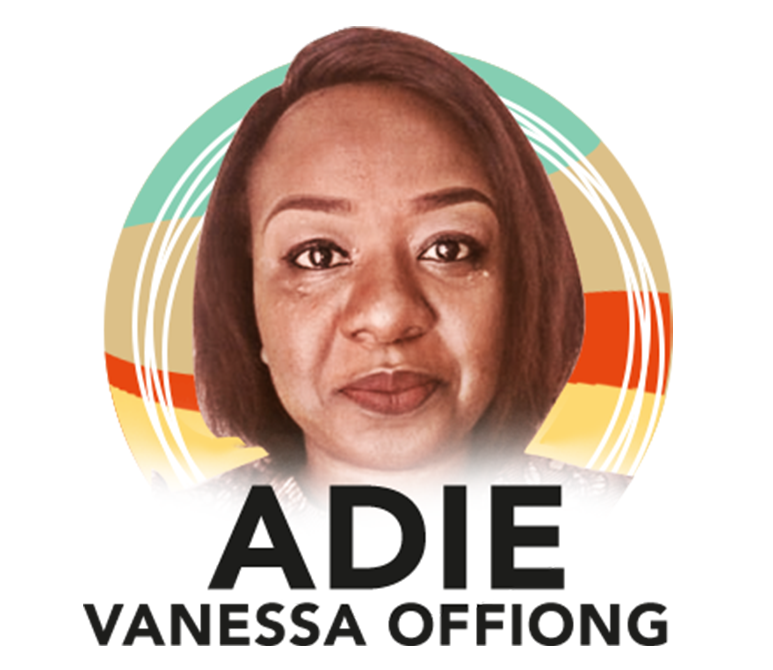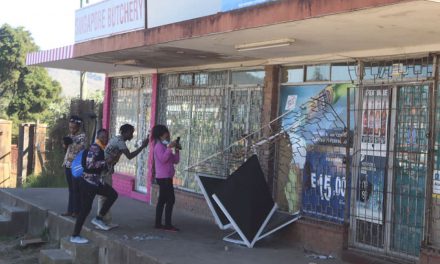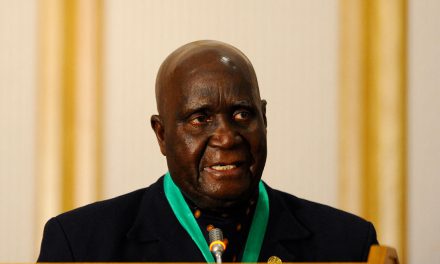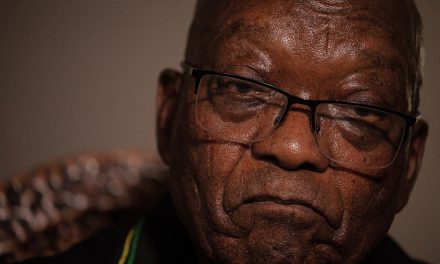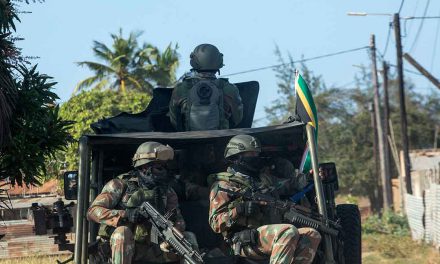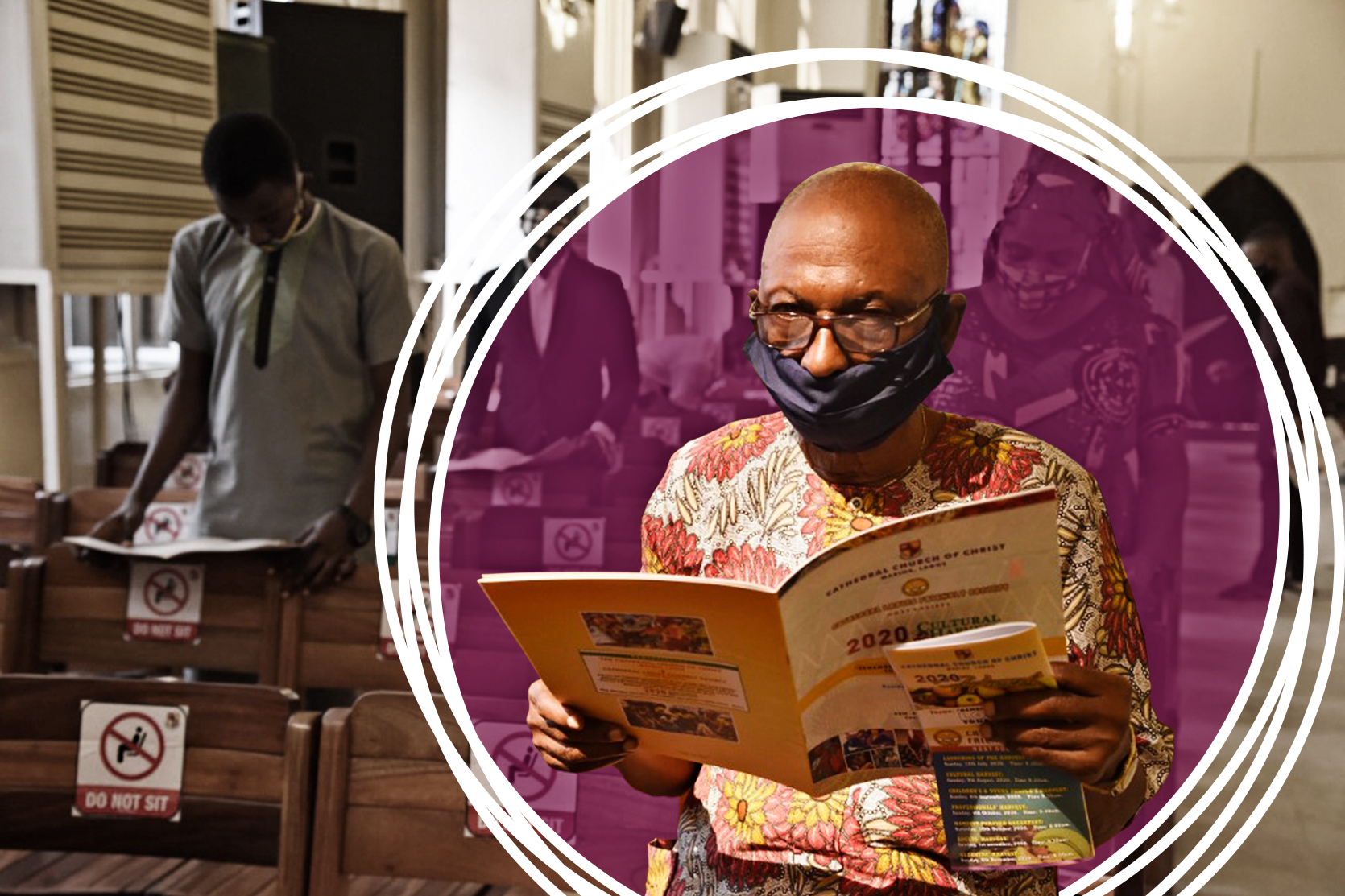
On 7 January, 2020, the International Rescue Committee (IRC) published an article about ‘The top 10 crises the world should be watching in 2020.’
Then countries potentially facing devastating crises in 2020 were listed. Nigeria was ranked fourth, in the company of the likes of Yemen (1), the Democratic Republic of Congo (2), Syria (3), Venezuela (5), Afghanistan (6), South Sudan (7) Burkina Faso (8), Somalia (9) and Central African Republic (10). As regards Nigeria, the IRC said that the country’s decade-long battle with insurgency in Nigeria’s north-east was the most prominent of the multiple threats the country faced, along with rising communal violence in central areas and the north-west.
Moreover, a cholera outbreak in 2018 across 20 states in Nigeria aggravated the country’s battle with food insecurity, while large-scale displacement had left “over half of the 13.4 million people living in the conflict affected north-east states need[ing] some form of humanitarian assistance”, according to the article. The country would see “new constraints on humanitarian efforts, that would exacerbate existing conditions. The situation in the north-west could deteriorate even further, particularly if armed groups operating there establish links to counterparts active in the Sahel.”
But the IRC, like the Nigerian government and Nigerians generally, could not have foreseen the humanitarian crisis that would unfold in only a matter of months as a result of the Covid-19 pandemic, which has posed risks beyond mass displacement and food insecurity, including a major challenge to the country’s health sector. As recorded in my first blog in this series, Nigeria recorded its index case on 27 February. And the country went into its battle with the novel virus equipped with a health budget of $1.09 billion, or 4.14% of the annual budget.
Then countries potentially facing devastating crises in 2020 were listed. Nigeria was ranked fourth.
Beginning in March, the federal and state governments, with relevant agencies, announced a series of policies aimed at controlling the spread of the virus.
In mid-March, Nigeria’s National Centre for Disease Control (NCDC) provided guidance on planning mass gatherings, as initial cases of infected people were confirmed. Later that month, the country’s Central Bank rolled out N100 Billion credit support for the healthcare sector, as well as guidelines for its operations under pandemic conditions.
A few days later, Lagos State, where Nigeria’s index case originated, promulgated Infectious Diseases Emergency Prevention Regulation 2020, to become effective on 27 March. Ekiti State, in the country’s south-west region, soon followed with regulations detailing measures aimed at preventing the spread of the virus in the state.
In early April, when the country had only 209 confirmed cases of infection, the Nigerian government announced plans to create a N500 billion ($1.39 billion) coronavirus fund to strengthen its healthcare infrastructure to tackle the virus. Mid-month, the National Environmental Standards And Regulations Enforcement Agency (NESREA) published guidelines for handling chemicals used as disinfectant, as well as guidelines for handling infectious and medical waste.
The country’s Central Bank rolled out N100 Billion credit support for the healthcare sector, as well as guidelines for its operations under pandemic conditions.
Lagos State, which has been commended for taking the lead in regard to policies and guidelines dealing with the pandemic, launched Eko Telemed, a toll-free voice and video call service available in four major languages, for use in remote consultations. Later that month, the NCDC published guidelines for employers and businesses in Nigeria, effective from 4 May, aimed at ensuring that people interacted safely in the workplace.
With the first phase of the easing of the lockdown on 30 April, the Presidential Task Force on Covid-19 issued further guidelines aimed at containing the virus. On 7 May, the federal government also approved a waiver on import duties relating to medical equipment and supplies. It also directed the Nigeria Customs Services (NCS) to expedite the clearing of imported health and medical equipment and supplies. On 31 May, the Lagos State government also started a ‘register to open’ initiative aimed at assessing the level of preparedness of hospitality centres, places of worship, night clubs, events centres, gyms/spas, and social clubs to carry out measures aimed at curbing the spread of the virus.
Analysing these steps, Dr. Ejike Oji, chairman of the medical sub-committee advising the Ministerial Expert Advisory Committee on Covid-19, said the pandemic has exposed “the good, the bad and the ugly” in the country’s health governance capabilities.
The “good side” was that federal government had shown “tremendous leadership by making sure that funds are approved both for the public and private sector,” he told Africa in Fact. “We are talking about 600 billion naira. Every single case treated at public isolation and treatment centres costs 50,000 naira. The federal government bears that cost. That is leadership.”
The pandemic has exposed “the good, the bad and the ugly” in the country’s health governance capabilities.
Also, the federal government had set up the Presidential Taskforce (PTF) on Covid-19, which, working with the Nigeria Centre for Disease Control (NCDC), had given crucial direction to the country and helped to achieve uniformity of purpose at national government level in dealing with the pandemic. In particular, the participation of the NCDC had ensured that the PTF had technical support. “That shows leadership too,” Oji said.
But he was critical of the efforts of state governments. Overall, state governments had “failed woefully” to deal effectively with the virus. “Most of the states are not putting proper [administrative] structures in place. There are no isolation centres. They are also not tracking, testing and isolating people who are positive, but in denial.”
Indeed, the coronavirus pandemic has made everybody in Nigeria acutely aware that our healthcare system is broken. Since no one can leave to seek treatment abroad, everyone is dependent on what services they can find within the country – delivery of which is almost entirely in the hands of state administrations.
As regards public policy and implementation, the Nigerian government’s health portfolio is devolved to the states, and the federal government cannot prescribe policies to them. The federal government can only offer guidelines to be followed. Many of Nigeria’s state governments have acted irresponsibly in handling the pandemic, according to Oji. “The PTF handles the guidelines, while the states are supposed to deliver services on the ground. But some states are still in denial that Covid-19 is even occurring in their territory. And some state leaders who have taken ill – commissioners and even governors – have run to Abuja to get treated.”
The coronavirus pandemic has made everybody in Nigeria acutely aware that our healthcare system is broken.
Almost 50% of cases in Abuja had come from other states, such as Kogi and Kano, he noted. Abuja had the highest number of isolation beds, and had carried out more tests per capita than any other state.
Many states had also not done well with public education and community engagement – key measures in reducing the spread of the virus. Aid agencies seem to be stepping in for the government here. In Nigeria, the International Committee of the Red Cross, is using commercial rickshaws, commonly called keke, to spread Covid-19 prevention messages. In Lagos, UNICEF is supporting awareness campaigns by health educators in local government areas in Lagos State, which has a population of more than 14 million people.
The US Agency for International Development (USAID) has partnered with telecoms company Airtel to help the Nigerian government provide critical information on how to avoid contracting COVID-19. The project targeted “more than a million” Nigerians daily, and was part of a broader programme of US government support, with $6.7 million pledged “to bolster Nigeria’s efforts to prevent and respond to the spread of the virus,” according to the organisation’s website.
But efforts to control the spread of the coronavirus across Africa should go beyond such traditional public health measures, according to Evaborhene Aghogho Nelson, a physician and currently a global health and development post-graduate fellow at University College, London. “Response coordination should also be framed around symbols or figures that strengthen national unity in order to sustain community mobilisation,” he told Africa in Fact. “It is crucial African heads of state engage communities in ways that echo their shared beliefs and ideologies, and that approach should be reflected in planned behavioural change strategies.”
“It is crucial African heads of state engage communities in ways that echo their shared beliefs and ideologies, and that approach should be reflected in planned behavioural change strategies.” – Evaborhene Aghogho Nelson
Some states were showing signs of good leadership, such as the Federal Capital Territory (as it happens, it is the country’s capital). The FCT, with a population of more than 2.4 million people had tested 14 23,169 samples as at the end of July. Of these, 2,687 were positive, 810 had been treated and successfully discharged, while 39 deaths were recorded. The FCT minister, Muhammad Musa Bello, had set up an advisory committee, which Oji believed was “doing well” in supporting the healthcare department.
More recently, Kano had improved its performance in dealing with the virus, he added. As I referenced in my fourth blog, Zango and Dorayi, two pilot projects in Kano have taken the lead in engaging community influencers with knowledge transfer and the implementation of targeted health interventions. Kano, the most populous state in north-west Nigeria, with a population of more than nine million people, had tested 19,916 samples by the end of July. Of these 1,314 tested positive, with 1,035 treated and discharged, and 52 deaths.
In June, the Nigerian government introduced a plan to invest in healthcare infrastructure, the Economic Sustainability Plan. The plan constitutes a “12-month, N2.3 Trillion ($6, 052, 631, 578) ‘Transit’ plan between the Economic Recovery and Growth Plan (ERGP) and the successor plan to the ERGP, which is currently in development.” The ERGP, developed by the Administration of President Muhammadu Buhari in 2017, was aimed at restoring economic growth.
The new plan was announced on March 30, 2020 and includes measures to increase government revenues, a support package for private businesses (with an emphasis on strategic sectors most affected by the pandemic) and vulnerable segments of the population, specific measures to support the states and the FCT, and a strategy to keep existing jobs and create new ones, among others.
In June, the Nigerian government introduced a plan to invest in healthcare infrastructure, the Economic Sustainability Plan.
The Economic Sustainability Plan has been applauded as a step in the right direction. The country’s response to the pandemic was “well-planned and articulated,” said Edward Kallon, UN Resident and Humanitarian Coordinator in Nigeria. He added that “interactions between the federal government and stakeholders would aid a smooth implementation of the plan,” perhaps suggesting that co-ordination was failing at that point in the system.
However, critics have argued that the stimulus package is small when compared to countries of similar size. “While Nigeria’s stimulus package is 1.6% of its GDP, Morocco, Namibia, and Senegal have deployed packages valued at 2.7%, 4.3%, and 7% of their GDP respectively,” Mma Ekeruche, an economist at the UK-based Centre for the Study of the Economies of Africa, told Africa in Fact. Only 11 million Nigerians would receive the ₦20,000 ($52) provided to families registered in the National Social Register of poor and vulnerable households, she said. “This is [in] sharp contrast to the 84.7 million Nigerians living below the poverty line.”
More generally, Ekeruche argues that the new plan is “overly optimistic” in saying that the ₦2.3 trillion stimulus package would result in an economic decline of 0.59%. This is against a backdrop of current recession projections of -5.4% by the IMF. Funding the financial package would be challenging, she added. “The low oil price has significantly depleted the country’s revenue source, [so] producing a bigger stimulus through more debt is a tough choice.”
Oji argues that a major cause under-performance in healthcare delivery is related to the funding of the Basic Health Care Provision Fund. The Basic Health Care Provision Fund stipulates that the federal government should set aside a minimum of 1% of National Consolidated Revenue for the Basic Health Care Provision Fund. But a decline in projected national 2020 income due to the pandemic had seen this reduced by N3.3 trillion (about 39%) from an initially approved amount of N8.41 trillion to N5.08 trillion. Oji suggested that legislators should see to it that the Basic Health Care Provision Fund (BHCPF) receives 2% of the national budget to meet future requirements.
However, critics have argued that the stimulus package is small when compared to countries of similar size.
The Nigerian government was heading in the right direction regarding its policies for the health sector against the backdrop of the pandemic and attempting to make them sustainable in the future, said Dr Henry Uro-Chukwu, a health policy and systems research specialist. But he echoed concerns that some states, such as Kogi and Cross River, had denied the existence of the virus. This was “obviously due to improper guidance. Community engagement by community leaders,” he said, was “completely missing”.
In a wide-ranging interview, he outlined a detailed view of areas where Nigeria’s healthcare system could be significantly improved, given the lessons from dealing with the coronavirus. “A health system is not only about money,” he said, adding that it’s also how money is used.
His proposals included reviewing human resources practices, upgrading information management systems, reviewing standards in medicine supply and logistics, and preventive medicine, among other measures to improve healthcare delivery. “If you have these pillars [working] together, that makes up a good and functional health system.”
In particular, he argues that “60% or 70%” of the plan’s health budget of N2.3trillion should be targeted at prevention activities and community mobilisation, with the other 40% or 30% going into therapeutic medicine. In outline, he argued that spending more on prevention of diseases would help to reduce the amount spend on treating them.
More specifically as regards the virus, the country needed to invest in local vaccine production and community engagement and education to create a two-pronged preventive approach to curbing its spread. The effort in developing this would also help to create a more sustainable medical infrastructure for the future, he concluded,
But will the lessons of the virus be learned? Looking back at my blogs for this series, I see that the lack of connection between federal and state levels has been a constant concern. In the immediate post-colonial period, Nigeria’s federal system was designed to address the “wicked problem” of its large and diverse population. But maybe that “solution” has created another “wicked problem”: how can the autonomous states be encouraged to devise policy and implement it more effectively within the context of our federal system?
We’d love to hear from you! Join The Wicked Conversation by leaving your comments below, or send your letter to the editor to richard@gga.org.


